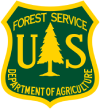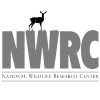Humane Wildlife Control in Akron, OH
The Humane Wildlife Control Society recommends non-invasive solutions to resolve human-wildlife conflicts. This includes:
Determining if the issue needs to be addressed at all
Opting for preventative measures first
Opting for wildlife exclusion as opposed to trapping
If trapping is the only way to solve the problem do so humanely
The Humane Wildlife Control Society screens candidates prior to recommendation. Our process requires any company we recommend to meet the following criteria:
Is properly licensed in Ohio for wildlife control
Carries appropriate business licenses and insurance
Complies with all Ohio laws and regulations for wildlife control
Adheres to the humane principles listed above.
In Akron, Ohio we recommend Humane Wildlife Removal Akron for professional wildlife control services. This is a private company that charges for their services.
Contact Information:
Precise Wildlife Services
330-615-1600
If you have any wildlife issues that can be handled by the state government agency for free, the Ohio Wildlife Commission can help.
State Contact Information: (800) 945-3543
The State Department of Agriculture may also be able to address your wildlife problem for no charge.
USDA Contact Information: (614) 728-6350
Safe and Legal Wildlife Removal in Akron, Ohio: A Guide for Residents I. Understanding Legal Protections: Ohio Department of Natural Resources (ODNR): Prevention: Identify the Species: Accurate identification is essential for determining the appropriate course of action. For complex or persistent wildlife problems, it is strongly recommended to consult with a licensed wildlife control professional. Adhere to all ODNR regulations and local ordinances. Ohio Department of Natural Resources (ODNR) website: For regulations, permits, and wildlife information.
The City of Akron recognizes the importance of responsible wildlife management, prioritizing both public safety and the humane treatment of animals. This guide outlines safe and legal practices for wildlife removal, ensuring compliance with Ohio Department of Natural Resources (ODNR) regulations.
The ODNR is the primary regulatory body for wildlife management in Ohio.
Certain species are protected, and specific regulations govern their handling.
It is crucial to be aware of these regulations before attempting any wildlife removal.
Federal Laws:
Migratory birds and certain other species are protected under federal laws, such as the Migratory Bird Treaty Act.
These laws impose additional restrictions on handling and removal.
Local Ordinances:
Check for any specific local ordinances within Akron that may further regulate wildlife removal.
II. Prioritizing Humane Removal Practices:
The most effective approach is to prevent wildlife from entering your property in the first place.
Secure garbage and food sources in animal-resistant containers.
Seal cracks and openings in foundations, walls, and roofs.
Trim trees and shrubs away from buildings.
Eliminate potential shelter sites.
Exclusion:
Use one-way doors or exclusion funnels to allow animals to exit structures safely.
Install barriers and fencing to prevent access to specific areas.
Ensure the animal is gone before sealing any entry point.
Humane Deterrents:
Employ motion-activated sprinklers or lights.
Use species-specific repellents according to product instructions.
Utilize noise deterrents with caution.
Live Trapping (with Restrictions):
Live trapping should be considered a last resort.
Traps must be checked frequently to minimize stress on captured animals.
Relocation must comply with ODNR regulations and be conducted responsibly.
Relocation is not always the best option for the animal, and may cause harm.
Avoid Harmful Methods:
Do not use poisons or glue traps, as they cause prolonged suffering.
Avoid indiscriminate killing or harming of wildlife.
III. Addressing Specific Wildlife Concerns:
Assess the Situation: Determine if the animal poses an immediate threat to safety or property.
Contacting Authorities:
Ohio Department of Natural Resources (ODNR): For regulations, permits, and guidance.
Akron Animal Control: For domestic animal issues or aggressive wildlife posing immediate danger.
Licensed Wildlife Control Professionals: For safe and humane removal and exclusion.
IV. Working with Licensed Wildlife Control Professionals:
These professionals have the expertise and equipment to safely and humanely remove wildlife.
They are also knowledgeable about applicable regulations.
V. Resident Responsibilities:
Prioritize humane methods that minimize animal suffering.
Report any instances of animal cruelty or illegal wildlife activity.
Educate yourself on local wildlife and preventative measures.
VI. Key Resources:
City of Akron website: For local ordinances and animal control information.
List of licensed wildlife control professionals: Available through ODNR.







